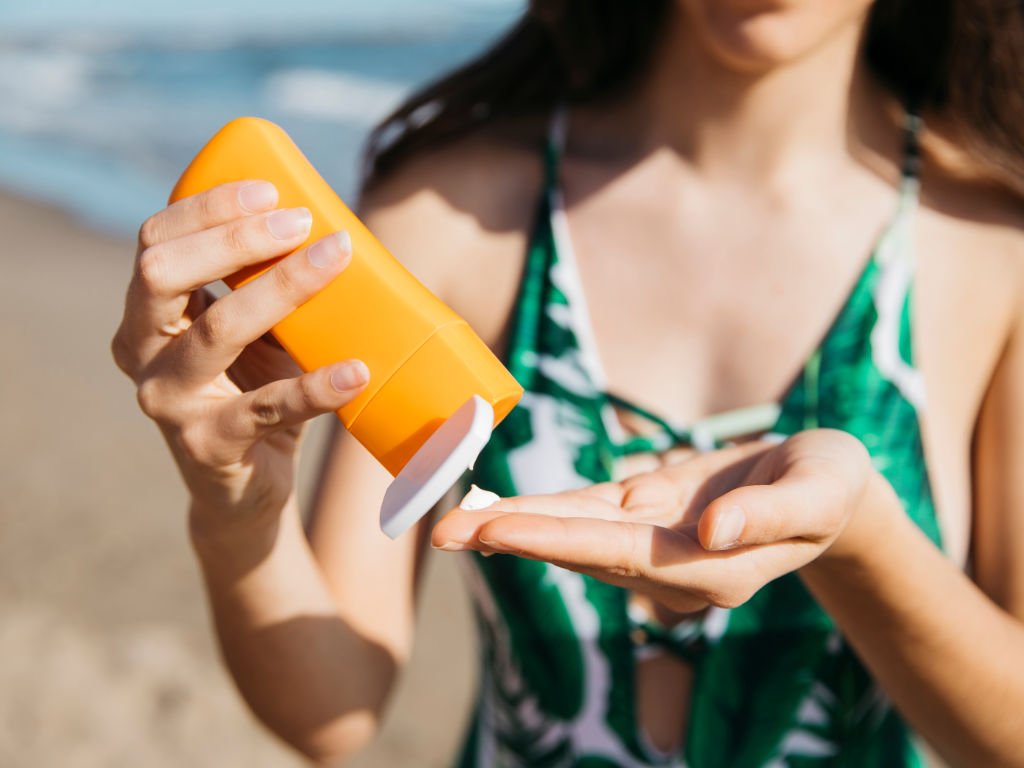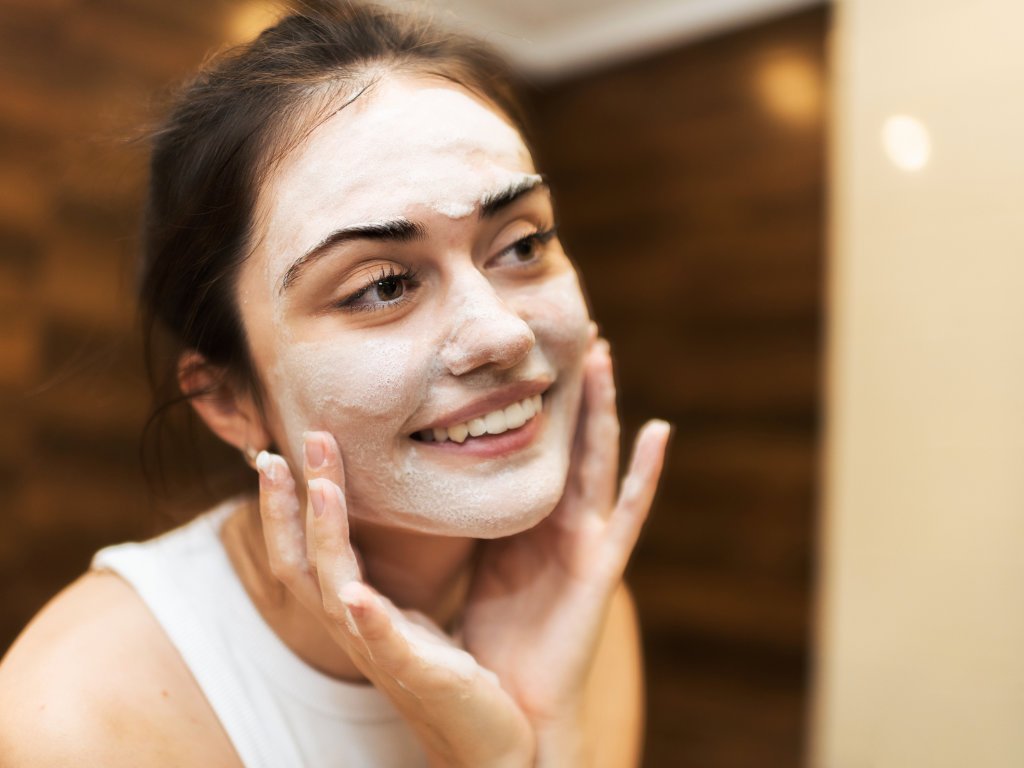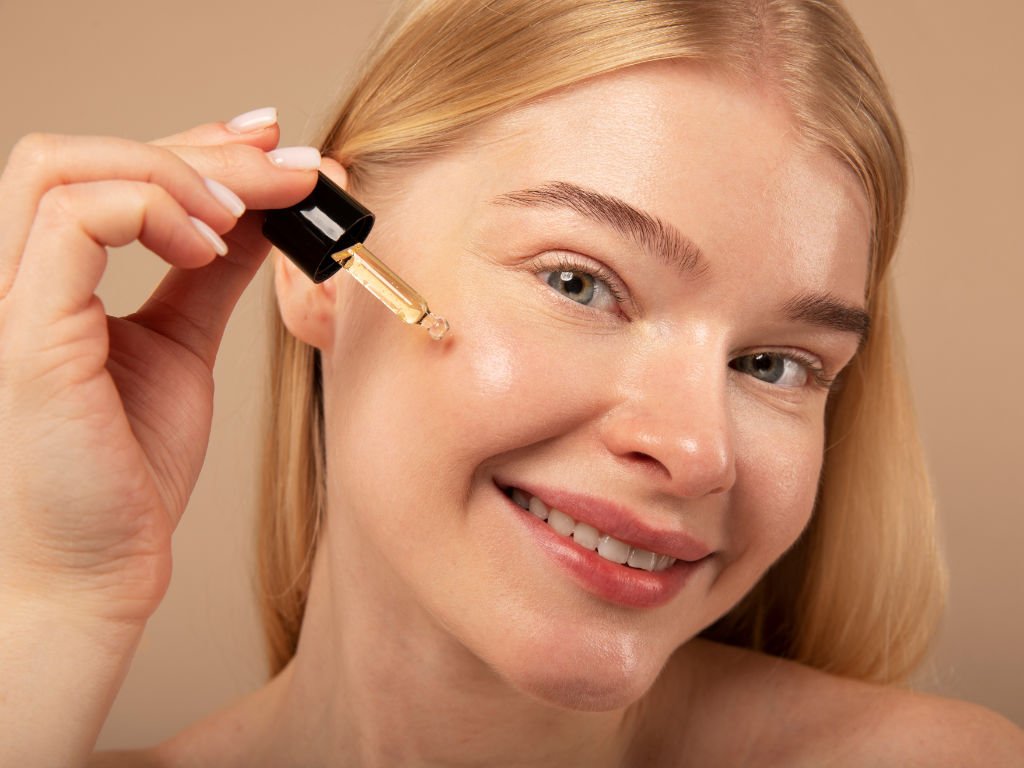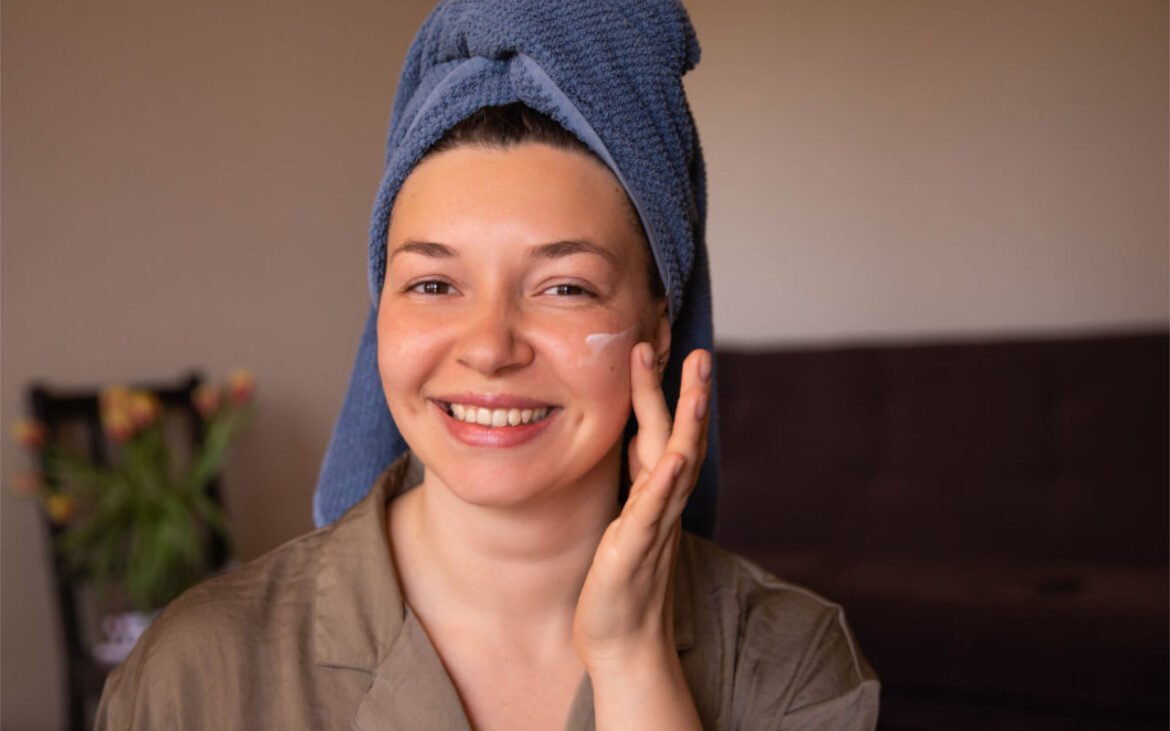Ever looked in the mirror and wondered when those fine lines decided to make themselves at home? You’re not alone. Anti-aging skincare has become more than just a beauty trend—it’s a necessity for anyone who wants to maintain healthy, radiant skin as the years go by.
The truth is, aging is inevitable, but looking your age? That’s totally optional. With the right approach and some insider knowledge, you can keep your skin looking fresh and youthful for years to come. Let’s dive into the seven game-changing secrets that’ll transform your skincare routine.
Understanding Anti-Aging Skincare: More Than Just Wrinkle Creams
What exactly is anti-aging skincare? It’s not just about slathering on the most expensive cream you can find (though quality matters). Anti-aging skincare encompasses a comprehensive approach to preventing and minimizing visible signs of aging—think wrinkles, fine lines, age spots, and that dreaded loss of elasticity.
The anti-aging skincare market is booming, valued at $77.96 billion in 2025 and projected to reach over $140 billion by 2034. Why? Because people are finally realizing that prevention is way easier (and cheaper) than trying to reverse decades of damage.
Here’s the kicker: starting early makes all the difference. Your 20s might feel too young to worry about anti-aging, but that’s actually the perfect time to build habits that’ll pay dividends later. Think of it as an investment in your future self.
The Foundation: Building an Effective Anti-Aging Routine
Before we jump into our seven secrets, let’s talk basics. An effective anti-aging skincare routine isn’t complicated, but it needs to hit certain key points:
- Gentle cleansing that doesn’t strip your skin
- Deep moisturization to maintain that plump, healthy look
- Daily sun protection (yes, even on cloudy days)
- Regular exfoliation to keep things fresh
The beauty of skincare is that it’s not one-size-fits-all. Your dry skin needs different care than your friend’s oily complexion. Customization is key to getting results that actually matter.
Secret #1: Hydration Is Your Best Friend
Let’s start with the most underrated secret in anti-aging skincare: hydration. When your skin is properly hydrated, it looks plumper, smoother, and way more youthful. Dehydrated skin, on the other hand, shows every line and imperfection.
Why Hydration Works
Hydrated skin maintains its elasticity and resilience. Think of it like a grape versus a raisin—both are the same fruit, but one’s got that bounce and fullness we’re after.
How to Maximize Hydration
- Hyaluronic acid is your MVP ingredient—it can hold up to 1,000 times its weight in water
- Squalane mimics your skin’s natural oils without clogging pores
- Aloe vera provides gentle, soothing hydration
- Don’t forget hydrating masks once or twice a week for an extra boost
Pro tip: Apply your moisturizer to slightly damp skin. This helps lock in that extra moisture and maximizes absorption.
Secret #2: Sun Protection Isn’t Optional

If you take away only one thing from this article, let it be this: sun protection is the single most important step in any anti-aging skincare routine. UV damage is responsible for up to 80% of visible aging signs. That’s not a typo—eighty percent!
The Reality About Sun Damage
UV rays don’t just cause sunburns. They break down collagen and elastin, create age spots, and accelerate the aging process even when you’re not trying to tan. The worst part? This damage accumulates over time, so that “harmless” sun exposure from your teens is showing up now.
Smart Sun Protection Strategies
- Broad-spectrum SPF 30 or higher every single day
- Reapply every 2 hours if you’re outside
- Mineral sunscreens with zinc oxide or titanium dioxide are gentler on sensitive skin
- Don’t forget often-missed spots like your neck, ears, and the backs of your hands
Here’s something most people don’t know: you need sun protection indoors too. UVA rays can penetrate windows, so if you’re working by a window all day, you’re still getting exposure.
Secret #3: Anti-Wrinkle Treatments That Actually Work
Now we’re getting into the heavy hitters. Anti-wrinkle treatments can seem overwhelming with all the options available, but some ingredients have serious science backing them up.
Retinoids: The Gold Standard
Retinoids are derivatives of Vitamin A and they’re probably the most researched anti-aging ingredients out there. They work by speeding up cell turnover and boosting collagen production.
Start slow with retinoids—they can be irritating at first. Begin with a low concentration a few times a week and gradually increase as your skin adjusts.
Peptides: The Gentle Alternative
Peptides are like text messages to your skin cells, telling them to produce more collagen. They’re generally gentler than retinoids and work well for sensitive skin types.
Application Tips
- Always start with clean, dry skin
- Use a pea-sized amount for your entire face
- Follow with a good moisturizer
- Never skip sunscreen the next day (retinoids can increase sun sensitivity)
Secret #4: The Power of Antioxidants
Think of antioxidants as your skin’s personal bodyguards. They fight off free radicals—those unstable molecules that damage your skin cells and accelerate aging.
Key Antioxidants for Anti-Aging
Vitamin C is the superstar here. It brightens skin, evens out tone, and protects against environmental damage. Look for serums with L-ascorbic acid or magnesium ascorbyl phosphate.
Vitamin E works beautifully with Vitamin C to provide comprehensive protection. Many products combine these two for maximum effectiveness.
Niacinamide (Vitamin B3) is fantastic for reducing inflammation and improving skin texture. It’s also great for those dealing with enlarged pores or uneven skin tone.
Green tea extract provides gentle antioxidant protection and has anti-inflammatory properties.
When to Use Antioxidants
Most antioxidant serums work best in the morning, creating a protective barrier for the day ahead. However, some (like Vitamin C) can make your skin more photosensitive, so sunscreen becomes even more critical.
Secret #5: Regular Exfoliation for Renewal
As we age, our skin’s natural cell turnover slows down. What used to happen every 28 days in our twenties can take 40+ days in our forties. Regular exfoliation helps speed this process up, revealing fresher, more radiant skin underneath.
Types of Exfoliation
Physical exfoliation involves scrubs or tools that manually remove dead skin cells. These can be effective but be gentle—over-scrubbing can cause irritation and damage.
Chemical exfoliation uses acids to dissolve the bonds between dead skin cells. This tends to be more effective and less irritating than physical methods.
Chemical Exfoliants Worth Knowing
- Alpha Hydroxy Acids (AHAs) like glycolic and lactic acid work on the surface to improve texture and brightness
- Beta Hydroxy Acids (BHAs) like salicylic acid penetrate deeper and are great for oily or acne-prone skin
- Polyhydroxy Acids (PHAs) are the gentlest option, perfect for sensitive skin
Exfoliation Guidelines
Start with once or twice a week and see how your skin responds. Over-exfoliating can actually accelerate aging by damaging your skin barrier. Listen to your skin—if it’s red, irritated, or overly sensitive, dial it back.

Secret #6: Nutrition and Hydration from Within
Here’s something the beauty industry doesn’t want you to know: the most expensive anti-aging skincare routine in the world won’t work if you’re not supporting your skin from the inside.
Foods That Fight Aging
Omega-3 fatty acids from fish, walnuts, and flaxseeds help maintain your skin’s lipid barrier, keeping it plump and hydrated.
Antioxidant-rich foods like berries, dark leafy greens, and colorful vegetables provide the building blocks your skin needs to repair itself.
Vitamin C foods like citrus fruits, bell peppers, and strawberries support collagen production.
Vitamin A foods like sweet potatoes, carrots, and spinach support cell turnover and repair.
The Water Factor
You’ve heard it before, but it’s worth repeating: drink more water. Dehydration shows up first in your skin, making fine lines more apparent and giving you that dull, tired look.
Aim for at least 8 glasses a day, more if you’re active or live in a dry climate. Your skin (and the rest of your body) will thank you.
Supplements That Support Skin Health
While a good diet should be your foundation, certain supplements can provide extra support. Collagen supplements have gained popularity for their potential skin benefits, though the jury’s still out on how much actually makes it to your skin.
Vitamin D, Vitamin E, and omega-3 supplements can help fill gaps in your diet, but always consult with a healthcare provider before starting any new supplement routine.
Secret #7: Consistency Is Everything
This might be the most important secret of all: consistency beats perfection every single time. The most elaborate anti-aging skincare routine won’t work if you only use it sporadically.
Building Sustainable Habits
Start small. If you’re currently doing nothing, don’t try to implement a 10-step routine overnight. Pick one or two products and use them religiously for a few weeks before adding more.
Morning routine basics:
- Gentle cleanser
- Antioxidant serum
- Moisturizer
- Sunscreen
Evening routine basics:
- Cleanser
- Treatment product (retinoid, peptide, etc.)
- Moisturizer
Patience Is Key
Skincare isn’t instant gratification. Most products need 6-12 weeks of consistent use before you’ll see significant results. That’s because your skin cells need time to turn over and regenerate.
Keep a skincare journal or take progress photos. Sometimes the changes are so gradual that you don’t notice them day-to-day, but they’re definitely happening.
What About Professional Treatments?
While a solid at-home routine is your foundation, professional treatments can provide that extra boost. Options like chemical peels, microdermabrasion, and laser treatments can address specific concerns more aggressively than over-the-counter products.
However, these should complement, not replace, your daily routine. And always, always go to a qualified professional. Your skin is not the place to cut corners.
Common Anti-Aging Skincare Mistakes to Avoid
Using Too Many Products at Once
More isn’t always better. Using too many active ingredients can overwhelm your skin and actually cause irritation that makes you look older, not younger.
Neglecting Your Neck and Hands
Your face isn’t the only thing that shows age. Extend your anti-aging skincare routine to your neck, decolletage, and hands. These areas are often forgotten but can be dead giveaways of your age.
Skipping Patch Tests
New products can cause reactions, even if you’ve used similar ingredients before. Always patch test new products on a small area before applying them to your entire face.
Expecting Overnight Results
Skincare is a marathon, not a sprint. Those “miracle” products promising overnight transformations are usually too good to be true.
Age-Specific Anti-Aging Strategies

In Your 20s
Focus on prevention: sunscreen, gentle cleansing, and moisturizing. You might also want to incorporate a mild Vitamin C serum.
In Your 30s
This is when you might start seeing the first signs of aging. Add a retinoid and consider more targeted treatments for any specific concerns.
In Your 40s and Beyond
Your skin needs more support now. Consider stronger treatments, professional procedures, and products specifically designed for hormonal changes.
The Mind-Body Connection
Here’s something most skincare articles won’t tell you: your mental and emotional state affects your skin. Chronic stress increases cortisol levels, which can accelerate aging and cause breakouts.
Managing stress through exercise, meditation, or other healthy outlets isn’t just good for your mental health—it’s part of your anti-aging skincare routine.
Getting enough sleep is crucial too. Your skin repairs itself while you sleep, so skimping on rest literally ages you faster.
Budget-Friendly Anti-Aging Options
You don’t need to spend a fortune to get results. Some of the most effective anti-aging ingredients are available in affordable drugstore products:
- Retinol products from brands like The Ordinary or CeraVe
- Vitamin C serums from budget-friendly brands
- Sunscreen from any reputable brand (the best sunscreen is the one you’ll actually use)
- Gentle cleansers and moisturizers from drugstore brands
Remember, expensive doesn’t always mean better. Focus on products with proven ingredients rather than fancy packaging.
Frequently Asked Questions
When Should I Start Using Anti-Aging Products?
The best time to start is in your twenties, focusing on prevention rather than correction. However, it’s never too late to begin—your skin can benefit from a good routine at any age.
Can I Use Multiple Anti-Aging Ingredients Together?
Some ingredients work well together, while others can cause irritation when combined. For example, retinoids and AHAs can be too harsh when used together. When in doubt, alternate products on different nights or consult with a dermatologist.
How Long Before I See Results?
Most people start seeing improvements in skin texture and hydration within 2-4 weeks. More significant changes in fine lines and discoloration typically take 6-12 weeks of consistent use.
Are Natural Ingredients Better for Anti-Aging?
Natural isn’t automatically better. Some natural ingredients are fantastic for skin (like green tea extract or hyaluronic acid), while others can be irritating. Focus on ingredients with proven efficacy rather than their origin.
What’s the Difference Between Anti-Aging and Anti-Wrinkle Products?
Anti-aging is a broader term that encompasses preventing and treating all signs of aging, including wrinkles, age spots, and loss of firmness. Anti-wrinkle products specifically target fine lines and wrinkles.
The Bottom Line
Look, aging is a privilege that not everyone gets to experience. But that doesn’t mean we can’t do it gracefully. With the right anti-aging skincare approach, you can maintain healthy, radiant skin for years to come.
The key is starting with the basics—hydration, sun protection, and gentle care—then building from there based on your specific needs and concerns. Remember, the best routine is the one you’ll actually stick to.
Your skin is unique, so what works for your friend might not work for you. Don’t be afraid to experiment (safely) and adjust your routine as your skin’s needs change.
Most importantly, be patient with yourself and your skin. Good things take time, and the effort you put in now will pay dividends in the future. Your older self will thank you for starting today.
Consistency, patience, and the right products—that’s the real secret to anti-aging skincare success. Now stop reading and go apply that sunscreen!


